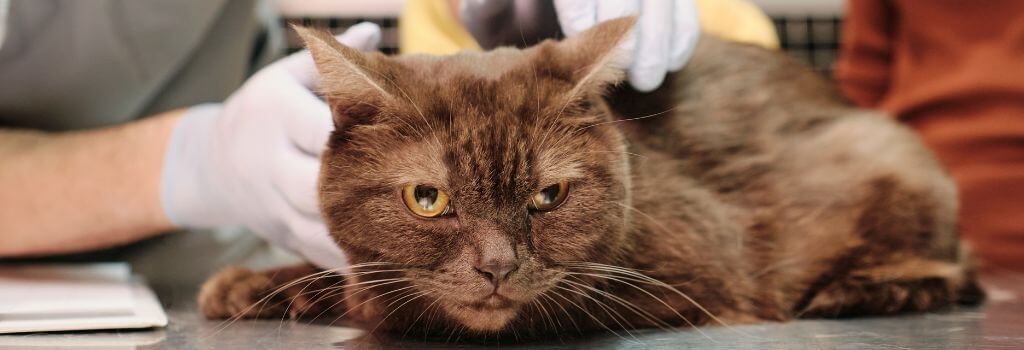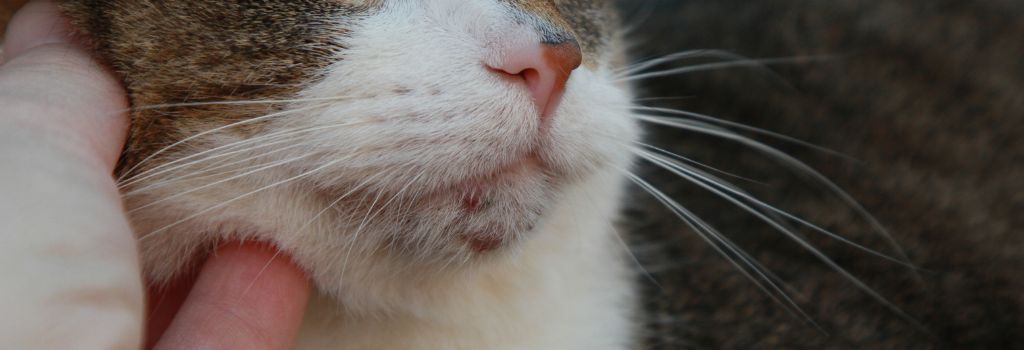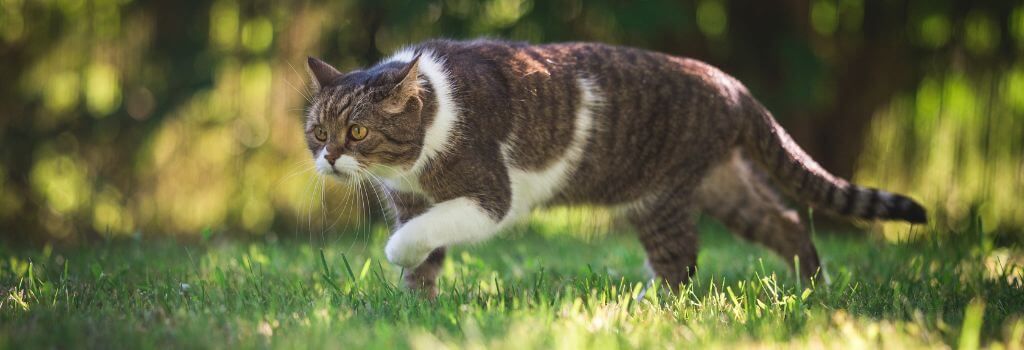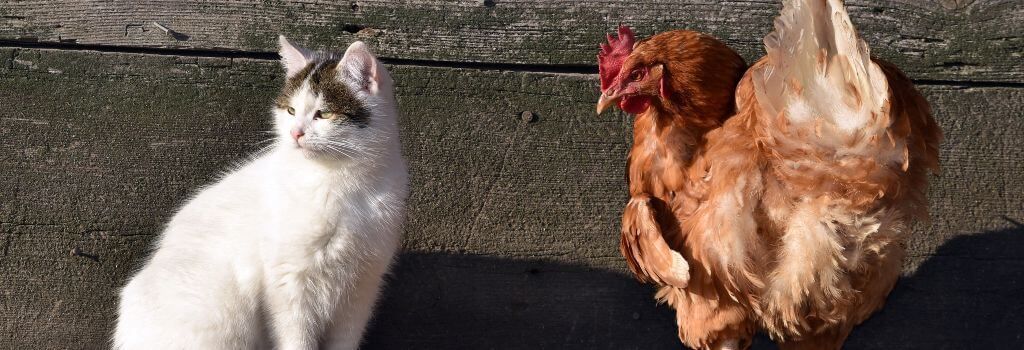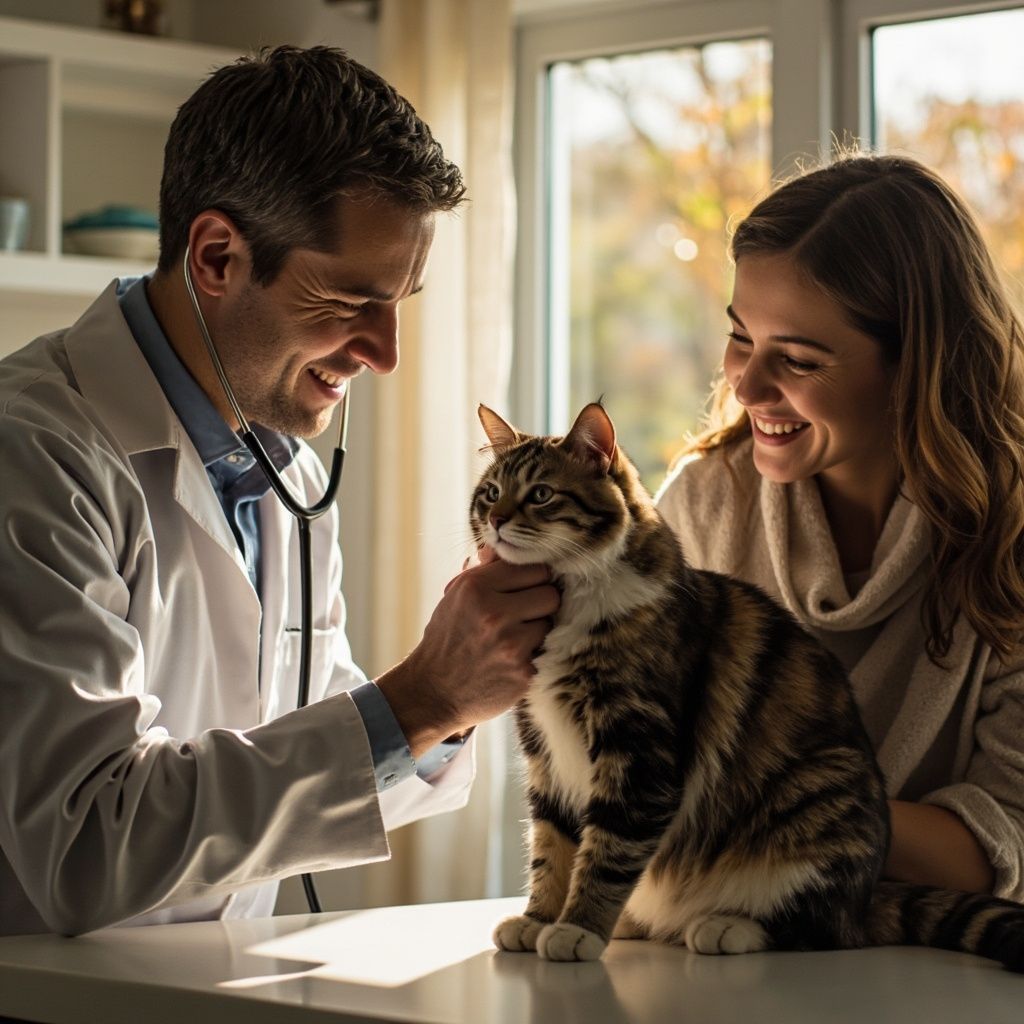10 Ways to Be the Best Cat Owner You Can Be
Just about anyone can be a cat owner. But it takes a special person and some serious effort to be a great cat owner. Sharing your home with a feline friend is about more than feeding them daily and keeping their litter box clean. It’s about creating an environment that meets their needs, keeping them safe, and ensuring they get to spend lots of healthy, happy years by your side. As veterinarians, clients often ask us how they can be better cat owners and what they can do to give their pets the best life possible, especially if they’ve never had cats in their lives before. Here, we will be discussing a few of the many ways to be the best cat owner you can be. Let’s get started!
1. Build a Relationship with a Good Veterinarian
Even if your cat is perfectly healthy, they need to see a vet for routine exams, vaccinations, etc. It is also important to have an established relationship with a veterinarian in case your cat ever gets sick or suffers an injury. If you are new to the area or have recently adopted your first cat, ask your friends and neighbors for vet recommendations. Word of mouth is an excellent way to find the right vet for your feline friend. Once you’ve chosen a vet, be sure to schedule annual wellness exams. Keeping up with preventive care is one of the best ways to be a good pet parent.
2. Keep Grooming Supplies Handy
Cats may be known for their hygiene meticulousness , but that doesn’t mean they are entirely self-sufficient in the grooming department. They need help from their owners, too. Part of being a good pet parent is purchasing appropriate grooming supplies and using them regularly. Learn how to properly groom your cat , and commit to caring for your kitty’s coat and nails frequently. If keeping up with your cat’s grooming needs is a struggle (as it can be for certain long-haired breeds), be prepared to take them to a professional cat groomer. Remember that taking care of your cat's teeth is a critical part of the grooming process, too, and good at-home care will hopefully save you money in vet bills for painful teeth issues.
3. Socialize with Your Cat Frequently
It is a common misconception that cats are antisocial and prefer being left alone. While some cats are more independent than others, they all benefit from spending time with their owners. They need playtime and social interaction – especially as kittens. Just like puppies, young kittens should be exposed to different people, animals, and social situations. This helps them grow into happy, well-adjusted adults.
4. Maximize Vertical Space
Cats love climbing and peering down on their kingdoms from high perches. Being high up creates a sense of comfort and security. And in multi-cat households, height allows felines to establish dominance without physical aggression. Climbing comes naturally to cats, and maximizing the vertical space in your home can also help your cat stay physically fit. Cat trees, wall-mounted stairs or shelves for climbing, and window mounts are all great ways to increase the usable vertical space in your home.
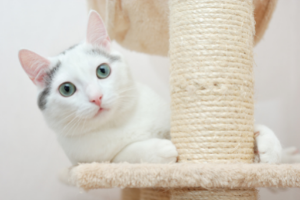
5. Provide Scratching Posts
Like climbing, scratching is a natural behavior for cats. They do it to care for their nails and to mark their territory. And if you don’t provide an appropriate place for your cat to scratch, they will choose a spot, or several spots, to destructively scratch on their own. If you don’t want claw marks on your sofa, door frames, or curtains, buy a few scratching posts and place them around your home. Your cat (and your furniture) will thank you.
6. Clean Their Litter Box Daily
No one enjoys cleaning a litter box. But if you are a cat owner, you need to do it daily. Maintaining a clean litter box is important to your cat’s health and makes them less likely to eliminate in inappropriate places. Keeping up with litter box maintenance prevents unpleasant odors in your home, too. If you have a hard time keeping up with daily scooping, consider investing in an automatic litter box that does the dirty work for you. Stick with one type of kitty litter. If your cat is using the box well, don’t switch the type or scent of the litter. Some cats are very particular in this area.
7. Feed Them the Right Food
Before you grab the most eye-catching bag of cat food off the supermarket shelf, take some time to check out the ingredients list. Many products are loaded with filler ingredients, such as meat by-products, cornmeal, and meat and bone meal, plus preservatives like BHA and BHT. When trying to find the right cat food , look for one with real meat as the first ingredient. Talk to your vet, too, to learn more about what food(s) would best meet your cat’s unique nutritional needs.
8. Train Them
Many people think that cats cannot be trained, but that is a misconception. In reality, it is surprising just how much a cat can be taught. The key is positive reinforcement. Rather than trying to punish them for bad behavior, reward them for good behavior. They will quickly realize that being good gets them treats, cuddles, playtime, etc. And once they realize this, they are much more likely to behave in a manner you deem appropriate.
9. Get Them Some Fun Toys
Even if your cat spends most of their day lounging on the sofa, they would love it if you got them a few toys. From catnip mice to wands with feathers, there are all sorts of cat toys to choose from. There are even things like automatic laser pointers that will give your cat a workout when you are too busy to play with them yourself. Remember that cats can be finicky, though, and you may have to try a few different types before discovering one that your feline friend loves. Rotating toys often also keeps them interested and stimulated.
10. Learn Their Language
No, we don’t mean learning to decode your cat’s meows. Instead, familiarize yourself with feline body language, and pay attention to what your cat is trying to tell you. If they are behaving aggressively for seemingly no reason, for example, it could be a sign that they are in pain or feeling unwell. If they are blinking rapidly or have their ears flattened and pointed to the side, they could be stressed. Learning to understand your cat’s body language allows you to better tend to their needs and build a stronger relationship with them. Giving your furry best friend the best life possible does not have to be difficult. With the tips listed above, you, too, can be a great cat owner. If you have any questions about caring for your cat or they are due for a checkup, give us a call. We would be more than happy to help!
Recent Posts

